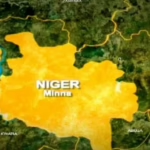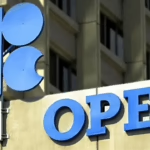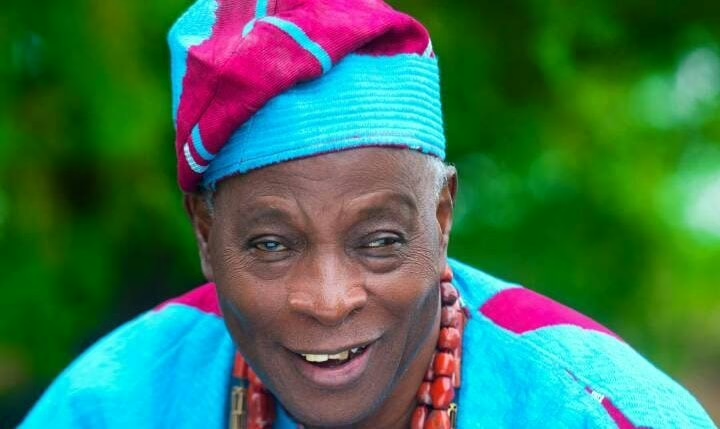Reflecting on Nigeria at 65: How Would You Assess Our Progress?
It is disheartening to acknowledge that after 65 years, Nigeria remains far from the aspirations we once held. Across all sectors-education, security, and the economy-we lag behind where we should be. Consider education: in earlier times, our academic standards were robust. Today, when someone claims the title of professor, one often questions the credibility of their credentials. The market is flooded with inadequately trained graduates.
Security remains a grave concern. In my youth, I traveled alone between Lagos and other cities without fear. Yet, in my later years, I was abducted from my own farm in Ilu-Abo. Basic amenities like running water have become scarce; Akure once had reliable water supply, now it’s a distant memory. Centralized sewage systems are virtually nonexistent outside Abuja. This begs the question: what has changed in our leadership quality at all levels?
After my release from detention in 1999, I had the opportunity to review Papa Adekunle Ajasin’s autobiography. He recounted that upon becoming governor of Ondo State, he brought two personal cars to the Government House. He generously donated one to his party, the UPN, which had none. Shortly after, the remaining car broke down, and he lacked funds to repair it. This was the reality before the military takeover in 1983-Ajasin was stranded without transportation.
Contrast that with today, where local government chairpersons often acquire luxury vehicles within months of assuming office. Why was Ajasin unable to afford car repairs? Because he prioritized public welfare and free education, channeling limited resources into electrifying over a hundred communities, constructing dams, and establishing industries like Ifon Ceramics and Ikole Brickworks. He also founded Owena Bank within four years, all on a modest budget. The focus was on the people’s well-being, not personal enrichment.
Nowadays, it’s rare to find a governor who doesn’t leave office as a billionaire.
Are you certain about that?
Absolutely. This trend has become the norm. When leaders at federal, state, and local levels prioritize personal gain, the populace inevitably suffers increased poverty.
How has Nigeria fared economically, in terms of security and employment?
Though it pains me to paint such a bleak picture, it reflects our reality. There has been some progress since independence-for example, from a single University College in Ibadan in 1960, we now have hundreds of universities. However, many are of questionable quality, producing graduates ill-prepared for the workforce.
Employment opportunities have dwindled. In the past, major companies actively recruited final-year students, offering jobs before graduation. Today, many of these companies have relocated to neighboring countries like Ghana, driven away by an unfriendly business climate marked by unreliable power, insecurity, poor infrastructure, and deteriorating roads.
Meanwhile, our population continues to surge, increasing demand for jobs and services, while our productive capacity declines. In the northern states, governments still invest in agriculture, providing tractors, irrigation, and inputs to farmers. In contrast, the south seems to have abandoned agriculture altogether.
Personally, I maintain two roads leading to my farm, spending my own money to grade them annually. One road, about 20 kilometers from Ilu-Abo, has eight culverts I built in 1997, yet it remains untarred. Another road from Imafon to my farm has seen no significant improvement despite promises. The contractors use rudimentary tools like shovels and diggers, lacking modern equipment. This neglect is widespread.
The welfare of citizens has been sidelined. Today’s politicians view public funds as their personal property, offering favors to the people as if they are acts of generosity deserving gratitude.
During Awolowo’s premiership and Ajasin’s governorship, road completions were simply opened for public use without fanfare. Now, extravagant ceremonies drain millions that could better serve schools or hospitals. We celebrate trivialities while neglecting critical needs.
In summary, Nigeria has not achieved its potential. While GDP and national income figures may rise, this growth has not translated into improved living standards for the average citizen. This is growth without genuine development.
What are the main obstacles hindering Nigeria’s progress?
The core issue is leadership. It’s straightforward. For example, Ajasin did not have a security vote and managed his budget with integrity, even refusing to allocate funds for security beyond minimal needs. His leadership was characterized by commitment to public welfare rather than personal enrichment.
Why don’t we see such leaders today?
Leadership today lacks the right values, focus, and priorities. During Ajasin’s tenure, some legislators sought to impeach him because he refused to bribe them to pass bills-a common practice elsewhere. He insisted that their salaries were sufficient compensation for their duties. His refusal to distribute “security money” meant no politicians in Ondo State were jailed for corruption, unlike in other states where such funds led to scandals.
Is there hope for resolving these challenges?
Yes, but only if leaders genuinely care about the people. Compassion and a sincere desire to improve citizens’ lives must be prerequisites for political office. My own entry into politics was driven by this conviction. Having served as director of economic planning, I understood Nigeria’s vast potential and was pained by the paradox of abundant resources alongside widespread poverty. My vision was to harness these resources to build Africa’s wealthiest nation.
Nigeria uniquely possesses a diverse array of natural resources-oil, gas, coal, iron, gold, lignite, uranium-unmatched by any other African country. Despite its relatively small landmass compared to neighbors like Burkina Faso and Mali, Nigeria holds over half of West Africa’s population. This concentration of people and resources suggests a divine mandate to create prosperity and employment.
Yet, current leadership remains fixated on sharing oil revenues from Abuja, neglecting the untapped potential of resources like unassociated gas in Eket, which surpasses the value of all oil ever produced in Nigeria.
Are today’s leaders aware of these opportunities?
They seem preoccupied with dividing oil wealth. The question is, how much money does one person need? Even billions can become a burden, consumed by efforts to preserve and multiply wealth rather than to enjoy or invest it productively.
Has a new generation of leaders taken charge?
Yes, but many lack the values and ethos of previous generations. Obafemi Awolowo, for instance, endured hardship to obtain his education, gathering firewood to fund his schooling. His experience instilled a commitment to ensuring no Yoruba child would suffer similarly. Such dedication is missing among many contemporary leaders.
Is Nigeria’s democracy effective, especially considering political waste and legislative inefficiency?
While elections occur, true democracy is compromised by widespread rigging and the influence of money. The will of the people is often overshadowed by financial power. This concentration of resources fosters waste, as the federal government controls most funds, leading to mismanagement. Decentralizing resources to states and local governments, where poverty is most visible, would enable more targeted and effective spending.
This highlights the need for restructuring Nigeria’s political system. The current model centralizes power excessively, a legacy of military rule aimed at maintaining unity through control. However, a federation requires willing participation from its members, which is undermined by this imbalance. A presidential system concentrates authority in one individual, which is problematic in a diverse society rife with ethnic tensions.
Did we adopt the American system?
Yes, but the U.S. has centuries of stable governance, with basic needs reliably met-good roads, schools, utilities, and social safety nets. In such a context, leadership changes have limited impact on daily life. Nigeria, still grappling with poverty and insecurity, cannot afford such concentration of power. A parliamentary system, with collective decision-making and accountability, would better moderate excesses and reflect the will of the people.
Looking back, which regime contributed most to Nigeria’s development?
Yakubu Gowon’s administration stands out. Under his leadership, Lagos saw the construction of ring roads, 17 airports were built nationwide, and universities were established in nearly every state capital. As a minority, Gowon distributed resources equitably without favoritism. I witnessed this firsthand as a senior officer during his tenure.
Do you support having only one legislative chamber?
A parliamentary system is preferable for several reasons. It fosters collegial governance, with a premier and ministers drawn from elected representatives who have established local support. Ministers remain accountable to the legislature and cannot be arbitrarily dismissed without losing their legislative seats. Decisions are made collectively by the cabinet, ensuring broader consensus and reducing the risk of autocratic rule. This system is also more cost-effective and strengthens democratic legitimacy.
Is President Bola Tinubu’s administration genuinely combating corruption?
Every government claims to fight corruption, but the problem is deeply entrenched. For example, police funds allocated to Ondo State often vanish before reaching their destination, undermining the very agencies tasked with enforcement. It’s rare to find a Nigerian police officer who has never accepted a bribe.
During my presidential campaign, I declared I had never taken a bribe and challenged anyone to prove otherwise. Corruption is often rationalized as a means of redistributing wealth amid widespread poverty, but this is a flawed justification.
The most effective anti-corruption strategy is leadership by example. When I led Nigeria Merchant Bank in 1981, I made it clear that bribery would not be tolerated. In five years, the bank had no corruption allegations or financial losses. Leaders must be transparently honest and ensure security agencies are well-equipped and supported. Only then can corruption be meaningfully addressed.






















